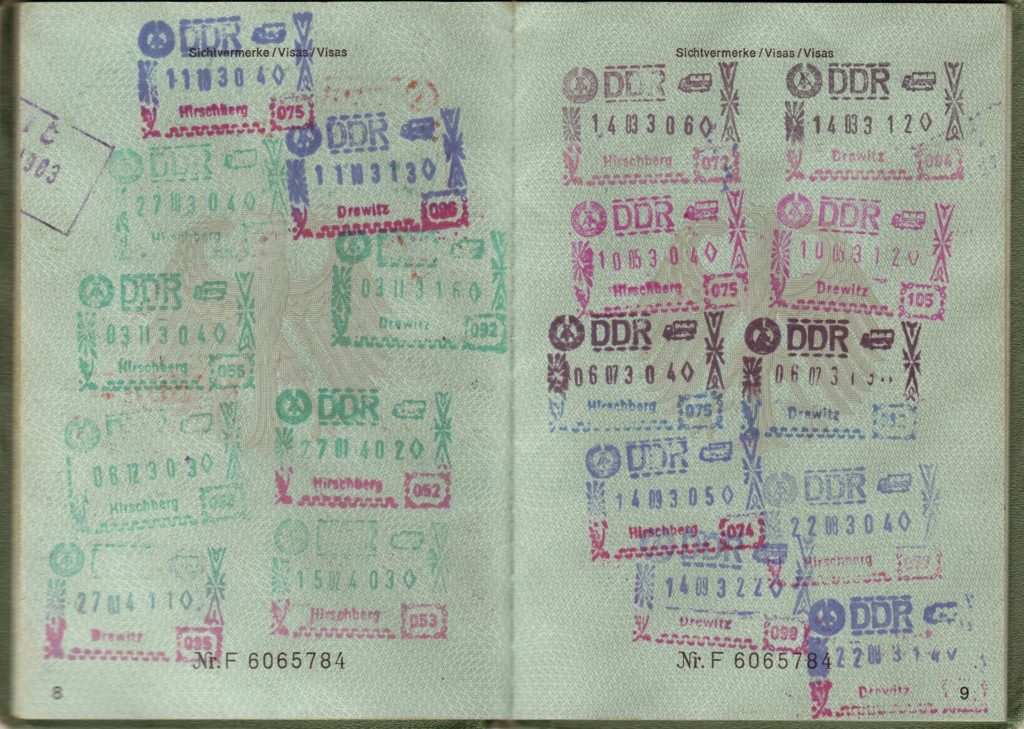One of our clients recently asked for our help “making sure” it could get a U.S. visa for one of its China-based Chinese managers. The client wanted this manager to come to the United States for two months of training. Our client had heard from a friend in a similar situation that it was “getting near impossible” to get a visa for people from China “unless you do absolutely everything right.” We have heard that the US Immigration Service pretty much assumes documents used to support getting visas for people from China are fraudulent, and then puts the burden on the party submitting the documents to prove otherwise. To put it another way, it is tough — but not impossible — for Chinese nationals to get into the United States.
So how do you increase the chances?
In 2006, the Going Global Blog did a post on getting a U.S. visa for business purposes, entitled, What Do You Have to Do to Get a Visa Around Here?“ Per our immigration lawyers, not much has changed since then. The post contains tips for securing United States temporary business visas, based on a meeting the Going Global blogger had with a US Department of Commerce representative.
According to the Department of Commerce person, U.S. Consulates “receive so many forged letters” supporting invitations to visit the U.S. for business purposes, “they disregard most of them.” The representative suggested circumventing this by having someone in a local U.S. government office concerned with immigration issues (Perhaps the Department of Commerce, the Department of State, or a United States Export Assistance Center) forward a scanned copy of your invitation letter to the Consulate by U.S. government e-mail. Receiving your letter this way will increase the likelihood of the Consulate giving your invitation a thorough look. The Commerce person also talked of how anyone seeking a United States temporary visa must bring as much documentary evidence as possible to the Consulate to show strong ties to their home country and every intention to return to it. Documents showing home ownership, a spouse and children, large sums in a bank account in the home country, domestic business interests, and a history of leaving the country and returning.
All these tips make sense, but I would add one more. If you are doing business with China and will frequently need to obtain visas for people from China, you should right now make it a point to get to know someone at the US Embassy in China or at one of the U.S. Consulates in China — preferably the one in the region from which the bulk of your visitors will be coming. And if you cannot do that, hire an immigration lawyer who has already done that. Tell the person at the Embassy/Consulate about your business and explain to them why you will eventually need Chinese citizens to visit you in the United States
. Ask that person if you can run all such letters through them.
Once you build up a record of credibility through honesty and a track record of the people you invite to the United States returning to their home country, it will become easier for you to get visas for people you need to see in the United States.
We’d love to hear about your experiences and challenges in this area. Share your stories below!
August 22, 2023 UPDATE: Since this post was written in 2006, the core substance of what it takes to secure US visas for Chinese citizens has not changed all that much, but the difficulties inherent in doing so have greatly increased. Here are the key changes since 2006 in getting US visas for Chinese nationals:
- The climate has become more restrictive overall due to heightened national security concerns, trade tensions, and fears of IP theft by China. Visa approval rates for Chinese citizens have declined.
- There is greater scrutiny of documents and invitation letters from China amid concerns about fraud. Supporting evidence like bank statements and family ties in China are more important than ever.
- Technology like biometrics and facial recognition is being used more extensively to verify identities and combat visa fraud. Document checks are also more sophisticated.
- The visa process itself has become more stringent with additional forms, interviews, and background checks required. The process takes longer than it used to.
- Having a relationship with the US embassy in China and establishing a track record of credibility is still helpful for companies sponsoring visitors. This inside support can smooth the process.
- Hiring an immigration lawyer with embassy contacts is now virtually essential for businesses sponsoring multiple Chinese nationals. The complexities today mean legal guidance is critical. Our immigration team has a ton of China experience (and language fluency) and we’re happy to assist with this.
- Geopolitical tensions between the US and China cast a shadow on all visa applications now. National security is top of mind for visa officers adjudicating Chinese applicants.

























